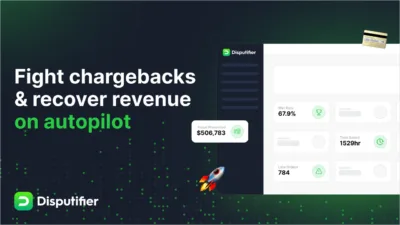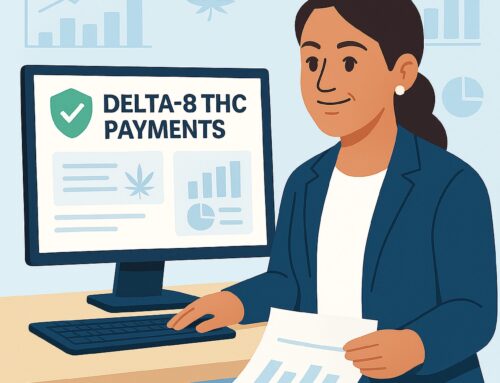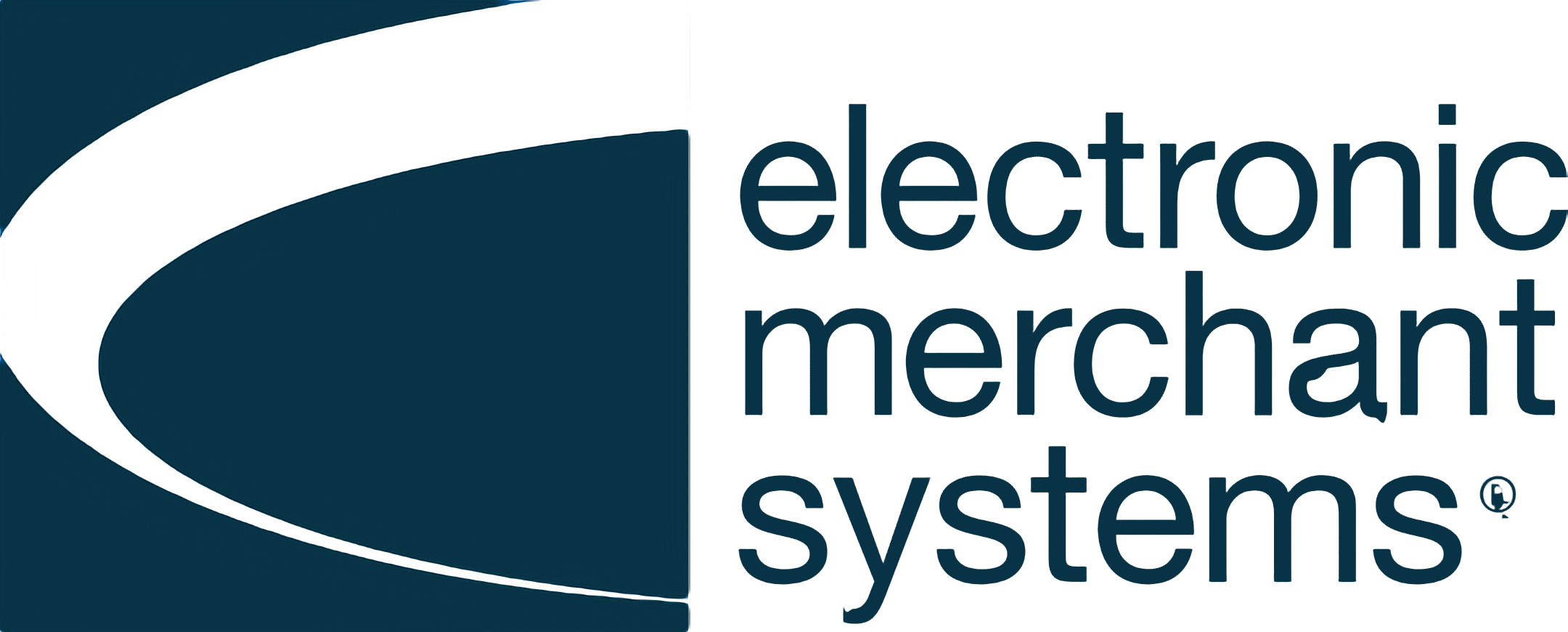Understanding the Benefits of Chargeback Alerts for Merchants
Key Highlights
- Proactive Chargeback Management: Chargeback alerts help merchants prevent chargebacks by solving disputes early.
- Exploring Different Alert Types: Learn about RDR, Ethoca, and CDRN chargeback prevention alerts and how to select the best for your merchant needs.
- Using Chargeback Management Tools: Tools like Chargeflow, Chargeblast, and Disputifier provide automation and efficiency for chargeback prevention.
- Reduce Financial Risk and Improve Customer Relationships: Chargeback alerts can help reduce chargebacks, prevent disputes, and maintain customer trust.
- Avoid Duplicate Alerts: Learn strategies for managing prevention alerts effectively and avoid receiving duplicate alerts for the same dispute.
- Understanding Chargeback Ratios: Understand the importance of maintaining a low chargeback ratio to protect your merchant account.
- High-Risk Merchant Necessity: Chargeback alerts are crucial for e-commerce and high-risk merchants who frequently receive disputes and chargebacks.
- Secure Payment Processing with VERIFIED Credit Card Processing: Learn how VERIFIED Credit Card Processing helps merchants integrate secure payment processing and offers special pricing for Disputifier.
Introduction
In the world of e-commerce, seamless transactions are key to keeping customers happy, but issues like chargebackscan pose a significant challenge. Chargebacks can not only result in financial losses but also put your merchant account at risk. This is why chargeback management and prevention alerts are crucial. Understanding the different chargeback alerts, how they work, and why they are necessary for high-risk businesses can help merchants proactivelymanage disputes and reduce chargebacks.
What Are Chargeback Alerts?
Chargeback alerts are proactive notifications that allow merchants to prevent chargebacks before they escalate into major problems. These alerts notify merchants of potential disputes early—before a full-fledged chargeback is processed. By acting quickly, merchants can issue a refund, resolve the dispute, or provide documentation, avoiding the chargeback altogether.
Types of Chargeback Alerts
It’s important to understand the different types of chargeback alerts to determine which alert provider will work best for your business. Here are the main types:
RDR Alerts (Rapid Dispute Resolution)
- RDR offers merchants an opportunity to receive chargeback alerts early, allowing them to directly communicate with the issuer to resolve the dispute before it becomes a formal chargeback.
Ethoca Alerts
- Ethoca alerts work to notify merchants of disputes involving confirmed fraud or potential chargebacks. They also help in building a strong connection between issuers and merchants, which aids in the early resolution of disputes.
CDRN Alerts (Chargeback Dispute Resolution Network)
- CDRN, managed by Verifi, helps merchants and issuing banks work together to address disputes before they escalate into chargebacks. Verifi’s chargeback dispute resolution network provides real-time notifications to merchants and allows them to solve problems quickly.
The Importance of Chargeback Ratios for Merchant Account Safety
Maintaining a low chargeback ratio is essential for safeguarding your merchant account. The chargeback ratiorepresents the percentage of total transactions that result in chargebacks. Exceeding a certain threshold—often set below 1%—could lead to penalties, increased fees, or even account termination.
- Chargeback Prevention Alerts Help Maintain Ratios: By using chargeback prevention alerts, merchants can keep their chargeback ratio in check by handling disputes proactively.
- Avoid the Chargeback: Acting on alerts and preventing chargebacks is key to keeping your merchant accountsecure and protecting against excessive chargebacks.
Avoiding Duplicate Alerts: Managing Ethoca, RDR, and CDRN
Using more than one chargeback prevention alert network can lead to duplicate alerts, which can make managing chargebacks more tedious. Here are some ways to avoid duplicate alerts:
- Identify Coverage: Understand which banks and regions are covered by each prevention alert network. This knowledge will help you manage alerts directly and reduce redundancy.
- Strategic Selection: Use Verifi and Ethoca strategically. For instance, if most of your customers use issuing banks partnered with Verifi, it may not be necessary to use both Ethoca and Verifi.
- Unified Platforms: Use chargeback automation tools like Chargeflow to manage alerts from different networks in one place, minimizing the risk of redundancy and improving efficiency.
Chargeback Alerts for High-Risk Merchants and E-commerce
For high-risk merchants and e-commerce businesses, chargeback prevention alerts are a necessity:
- Early Detection: High-risk merchants face an increased risk of disputes and chargebacks. By using chargeback alerts, merchants can detect potential chargebacks early, either to issue a refund or present documentation.
- Fraud Prevention: Chargeback alerts also serve as a chargeback mitigation tool by helping merchants identify fraud patterns quickly and effectively.
- Lowering Chargeback Rates: Managing alerts proactively allows merchants to reduce chargeback rates, keeping their business viable.
How VERIFIED Credit Card Processing Enhances Merchant Experience
VERIFIED Credit Card Processing offers value to merchants using chargeback alerts by providing:
- Secure Payment Processing: VERIFIED integrates Authorize.net to ensure secure transactions and compliance with industry standards.
- Tailored Pricing: Unlike PayFacs like Stripe or PayPal, VERIFIED offers dedicated merchant accountswith flexible pricing, often resulting in lower transaction costs.
- Disputifier Special Pricing: VERIFIED has partnered with Disputifier to offer exclusive pricing for merchants who use this comprehensive chargeback management tool.
Comparing Chargeback Management Tools: Chargeflow, Chargeblast, and Disputifier
Choosing the right tool can help merchants manage alerts, handle disputes before they become chargebacks, and minimize financial loss. Let’s compare Chargeflow, Chargeblast, and Disputifier:
Chargeflow
- Chargeflow alerts provide real-time notifications to merchants, allowing them to respond before disputes escalate.
- Automated Representment: Chargeflow automates chargeback representment, gathering and submitting evidence on behalf of the merchant.
CLICK HERE TO VISIT CHARGEFLOW >
Chargeblast
- Chargeback Prevention Alerts: Offers real-time alerts to prevent chargebacks through Ethoca and Verifi.
- Automated Dispute Management: Chargeblast automates dispute responses to save time and resources.
CLICK HERE TO VISIT CHARGEBLAST >
Disputifier
- Proactive Chargeback Alerts: Provides a clear view of all incoming alerts, enabling merchants to handle disputes before they escalate.
- Special Pricing with VERIFIED: By partnering with VERIFIED, Disputifier offers exclusive pricing that benefits merchants looking to manage their chargeback disputes proactively.
How Chargeback Alerts Help Reduce Financial Loss and Improve Customer Relationships
Chargeback alerts play a significant role in chargeback prevention, improving customer relationships, and reducing lost revenue.
- Reducing False Declines: Alerts help businesses identify and verify disputes, reducing the risk of false declines.
- Building Trust Through Transparency: By quickly responding to alerts, businesses show their commitment to resolving customer issues, leading to higher trust and loyalty.
- Avoid Chargebacks: Acting on prevention alerts helps to avoid chargebacks that could otherwise damage customer relationships and incur fees.
Conclusion
Chargeback alerts are an essential part of a complete chargeback management strategy, especially for high-risk merchants. Implementing alerts helps businesses reduce chargebacks, improve customer satisfaction, and avoid excessive fees.
For businesses that need proactive chargeback prevention and automation, choosing the right management platform is crucial. Whether it’s Chargeflow, Chargeblast, or Disputifier, these tools provide comprehensive chargeback mitigation support.
By working with VERIFIED Credit Card Processing, you not only receive alerts but also benefit from flexible pricing and secure payment processing options. Implement chargeback prevention alerts to keep your merchant account secure, reduce risks, and improve your overall customer experience.
FAQs – Frequently Chargeback Alerts Questions
What Are Chargebacks and How Do They Affect My E-commerce Business?
Chargebacks occur when a customer disputes a transaction with their card issuer, leading to a reversal of the payment. Chargebacks can negatively impact your business by increasing fees, affecting your merchant accountstatus, and potentially leading to a higher chargeback threshold. Maintaining a low chargeback ratio is crucial to ensure the stability of your payment processing capabilities.
What Is a Chargeback Prevention Alert and How Does It Work?
A chargeback prevention alert notifies a merchant about a potential dispute before it escalates into a full-fledged chargeback. Prevention alerts work by providing real-time notifications from an issuer when a cardholder disputes a transaction. Acting on these alerts early can help avoid excessive chargeback fees and mitigate losses, keeping the chargeback ratio low.
How Can I Prevent Chargebacks from Occurring?
To prevent chargebacks, consider implementing a robust chargeback prevention strategy. This should include clear communication with customers, accurate product descriptions, and effective customer service. Utilizing chargeback prevention alerts also helps identify potential disputes early, enabling you to address them before they escalate into chargebacks.
How Do Verifi and Ethoca Alerts Differ in Chargeback Prevention?
Verifi and Ethoca are both providers of chargeback alerts, but they have distinct processes. Verifi focuses on alerting merchants about disputes at an early stage to prevent escalation, while Ethoca alerts allow merchants to work directly with customers and issuers to resolve issues, thereby reducing the likelihood of chargebacks.
Should I Use Both Verifi and Ethoca for Chargeback Alerts?
Using both Verifi and Ethoca can provide wider coverage across issuing banks, but it can also lead to duplicate alerts. Carefully assess your customer base to determine if using both alert providers is ideal or if using just one would suffice to prevent redundancy in notifications.
How Can Chargeback Alerts Help Reduce Chargeback Rates?
Chargeback alerts help merchants by providing early warnings about potential disputes, allowing them to take proactive measures to resolve disputes before they escalate into chargebacks. This proactive approach helps maintain a healthy chargeback ratio and reduces the overall rate of chargebacks.
What Is the Cost Associated with Chargeback Alerts?
The chargeback alerts cost varies depending on the provider and the volume of alerts received. Services like Chargeblast and Disputifier have different pricing models, and with VERIFIED Credit Card Processing, merchants can receive special pricing for Disputifier. Typically, there is a fee per alert, which is often worthwhile compared to the costs incurred from chargebacks.
Why Are Chargeback Alerts Important for High-Risk Merchants?
High-risk merchants often face more frequent disputes and higher chargeback thresholds. Chargeback alertsprovide early notifications that are crucial for reducing risks, keeping a low chargeback ratio, and ensuring stability in the merchant’s payment processing.
How Does the Card Issuer Contribute to the Chargeback Process?
The card issuer plays a key role in the chargeback process by managing disputes between the merchant and the customer. When a chargeback is initiated, the issuer reviews the details and decides whether to uphold or reverse the chargeback based on the evidence provided by both parties.
Can Working with a Chargeback Management Company Help in Chargeback Mitigation?
Yes, working with a chargeback management company can significantly aid in chargeback mitigation. These companies specialize in analyzing chargeback data, providing insights, and implementing tailored prevention strategies, ultimately helping to reduce chargebacks.
What Is the Chargeback Threshold and Why Is It Important?
The chargeback threshold is the maximum percentage of transactions that can turn into chargebacks before penalties from payment processors occur. Maintaining a low chargeback ratio is crucial to avoid increased fees, stricter scrutiny, or even termination of your merchant account.
How Can I Start Preventing Chargebacks Effectively?
To start preventing chargebacks effectively, combine strategies like customer service improvements, clear product descriptions, and chargeback alerts to catch disputes early. Analyzing chargeback reasons and trends can also help you improve your chargeback prevention strategy.
Are Chargeback Alerts Expensive?
The expense of chargeback alerts depends on the chosen service provider. Chargeblast and Disputifier have different pricing structures, but VERIFIED Credit Card Processing offers special rates for Disputifier. While there is typically a cost per alert, it can be more cost-effective compared to the potential losses and increased fees associated with chargebacks.
How Do Prevention Alerts Work to Prevent Chargebacks?
Prevention alerts work by notifying merchants about customer disputes before they become chargebacks. This real-time alert gives merchants the chance to resolve disputes proactively, whether by issuing a refund or addressing the customer’s concerns directly. This early intervention helps prevent chargebacks from escalating and reduces associated costs.
What Role Do Prevention Alerts Play in Reducing False Declines?
Chargeback prevention alerts can also reduce the incidence of false declines by providing an opportunity to resolve disputes before they are classified as chargebacks. When customers mistakenly dispute legitimate transactions, these alerts help merchants verify and handle issues in real time, thus improving customer satisfaction and avoiding unnecessary refunds.
Continue Reading
Let us discover your best options.
Either submit the form below or get in touch with an agent now (415) 835-4135.
Applying is risk-free; we send your details to underwriters to find the best fit and contact you with the best option or request more details, with no credit checks or commitments.















